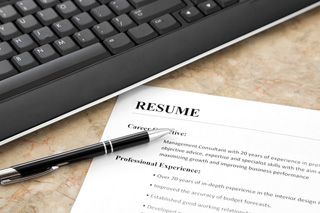The Four Worst Things To Include On Your Resume
 It is important now more than ever before to ensure that your resume is well-written. While there are numerous sites online offering advice on how to create the perfect resume, many of these tips are simply incorrect. The resume, like most things in the business world, has evolved over time. So things that were once commonplace are now considered to be superfluous. Knowing which things to leave off of your resume is perhaps more important than understanding what should be included. For including something that doesn’t belong has a greater potential to damage an applicant’s prospects than leaving out useful information. Here are the four worst things that people include on their resumes.
It is important now more than ever before to ensure that your resume is well-written. While there are numerous sites online offering advice on how to create the perfect resume, many of these tips are simply incorrect. The resume, like most things in the business world, has evolved over time. So things that were once commonplace are now considered to be superfluous. Knowing which things to leave off of your resume is perhaps more important than understanding what should be included. For including something that doesn’t belong has a greater potential to damage an applicant’s prospects than leaving out useful information. Here are the four worst things that people include on their resumes.
An Objectives Statement
The funny thing is that career centers often still hype this tired cliche. Companies worth working for understand that your main goal is to get the job that you’re seeking. Instead of wasting time creating an imaginary objectives statement to make some hiring manager feel warm and fuzzy inside, it is much better to instead write a summary of your qualifications. See, you’re more likely to get the job by explaining to the company what you can offer them and why you’re the best person for the particular position than simply stating imaginary objectives.
Bad Formatting And Graphics
Lots of things can go wrong when you begin to use graphics, non-standard fonts, and unconventional margins. Why risk it by using something which will draw attention away from the text itself? Possible rewards for such a strategy are minimal, but the likelihood that it will simply be a distraction for the hiring manager is very high. As a result, the important parts of your resume don’t get read and you don’t get the job. So stick with what is simple and what everyone expects to see. Basic is always best.
Old Job Duties and Tasks
Instead of going over your old duties and daily tasks, which can be dull and pointless, try to instead state what you accomplished at each job and what you learned. In particular, you should use this particular section to state how you helped either your old employers or customers. That will make a better impression on hiring managers than a simple list of day-to-day tasks.
Unrelated Information
Expounding too much on hobbies, awards, and accomplishments that have little or nothing to do with your chosen career path can be very distracting. Keeping the resume as basic and professional as possible without filling it with pointless information is the best strategy to improve the likelihood of it being read. And that is the point, after all; to get the hiring manager to spend just a little more time reading your resume than those of the other applicants. That increases your chances of being hired.
